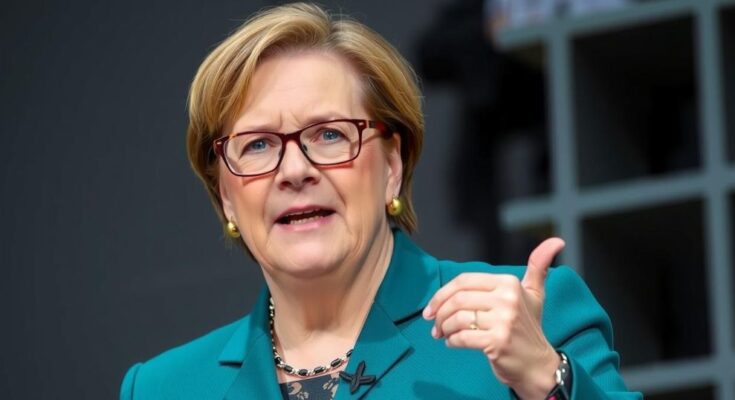Chancellor Olaf Scholz lost a confidence vote in parliament, leading to snap elections set for February 23, seven months early. This follows the collapse of his coalition government after the exit of key allies over fiscal disagreements. Scholz frames the upcoming elections as a critical choice between investing in growth or implementing austerity measures.
Germany is poised for new elections following Chancellor Olaf Scholz’s loss in a confidence vote within the Bundestag, where he garnered only 207 votes in favor versus 394 against him. This political turmoil comes after the collapse of his governing coalition, igniting a crisis in the largest economy of the European Union. Elections are scheduled to occur on February 23, seven months earlier than initially planned.
Scholz’s coalition was destabilized after he dismissed Finance Minister Christian Lindner, leading to the resignation of Lindner’s Free Democrats from the government. Following this exit, Scholz’s governing coalition now consists of his centre-left Social Democrats (SPD) and the Greens, but they lack parliamentary support until a new government is established. Amid months of discord over fiscal priorities, Scholz has placed blame on the Free Democrats for thwarting Germany’s essential investments.
As the chancellor contemplates the upcoming elections, he presents them as a chance for the electorate to redirect the nation’s future. He emphasizes the choice between cultivating growth versus enforcing austerity. Scholz has committed to substantial investments aimed at rejuvenating Germany’s deteriorating infrastructure and opposes any proposed spending reductions suggested by conservatives.
In the lead-up to the confidence vote, Scholz engaged in a heated debate with Friedrich Merz, leader of the opposition Christian Democratic Union. Both leaders exchanged accusations concerning incompetence, with Scholz asserting, “Shortsightedness might save money in the short term, but the mortgage on our future is unaffordable,” while Merz criticized Scholz for not adhering to his military reinforcement promises in the wake of Russia’s aggression toward Ukraine. Current surveys indicate that the conservative party holds a significant lead over the SPD, with the far-right Alternative for Germany slightly surpassing the Social Democrats and the Greens trailing behind.
In anticipation of the forthcoming elections, Scholz has proposed immediate measures, including tax reductions amounting to 11 billion euros and an elevation in child benefits. The political landscape remains complex, notably due to the mainstream parties’ refusal to form alliances with the AfD, which complicates achieving stable governance in the Bundestag.
This article discusses the political developments in Germany following Chancellor Olaf Scholz’s loss of a confidence vote, which has necessitated early elections. Scholz’s government, initially comprised of three political factions, has faced instability marked by the resignation of key members and subsequent intra-party conflicts regarding fiscal policies. The situation is compounded by high public support for opposition parties, particularly amid the backdrop of urgent economic and geopolitical challenges.
In summary, the political landscape in Germany is set for a significant shift as Chancellor Olaf Scholz’s government faces early elections due to a recent confidence vote loss. The fractures within his coalition underline deeper issues concerning leadership, fiscal priorities, and electoral prospects. As the February 23 elections approach, the electorate will have the opportunity to decide whether to maintain Scholz’s vision for growth or pivot towards a conservative agenda, with significant implications for the future governance of Germany.
Original Source: www.aljazeera.com




